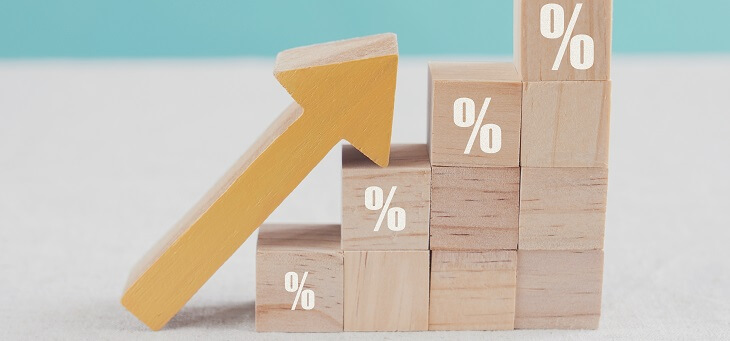As predicted, the Reserve Bank of Australia (RBA) has lifted the official interest rate for the fourth consecutive month.
It has lifted rates by 0.5 per cent to 1.85 per cent, meaning there’s more pain on the way for most households.
The move is the RBA’s latest effort to tackle inflation. While the rate rise will reduce consumer spending overall – and hopefully headline inflation – the tactic risks leaving tens of thousands of retirees behind.
Retired Australians who are still paying off a mortgage or renting will feel the rise acutely when their monthly housing costs go up – without a corresponding jump in their income.
Around one in 10 Australians are retiring with a mortgage each year. In fact, over the past two decades, the number of retired Aussies still paying off their home has tripled.
This change has been driven by the astronomical rise in house prices over the same period, coupled with an average first homebuyer age that’s increasing each year.
Read: Inflation hasn’t been higher for 32 years. What now?
Even those who own their home will feel the knock-on effects of the rate rise through increased living costs.
The Age Pension rate is indexed twice a year (in March and September) against the Consumer Price Index (CPI) figures, an official measure of inflation compiled by the Australian Bureau of Statistics (ABS).
As reflected by the RBA’s decision today, inflation in Australia is at levels not seen for at least two decades and is growing rapidly on a month-to-month basis.
Read: Big Age Pension increase expected as inflation highest since 2000
Even though the next Age Pension indexation is scheduled for next month, by that time it’s possible the RBA will have lifted rates for a fifth consecutive time and inflation will have grown even further.
By adjusting the rate only twice a year, the Age Pension is constantly playing catch-up with the wider economy.
National Seniors Australia chief advocate Ian Henschke says the biannual rate adjustment isn’t fair and means older Australians will always be behind.
Read: OECD calls for cap on housing tax breaks
“The next increase is not until September and by then inflation will have leapt ahead of the pension and [age pensioners] will be left even further behind,” he says.
“It’s like the hare and the tortoise, no sooner do we try to get ahead of the cost of living and any increase has already been gobbled up by soaring inflation.
“Clearly, adjusting the pension twice a year when we have runaway inflation is not fair.”
He suggests a fairer way would be to index the pension at least quarterly, twice as often as occurs now.
Today’s RBA announcement wasn’t all bad news though. If you have a sizeable amount in savings, then higher rates may be music to your ears.
Last month’s rate announcement saw each of the big four banks pass on the full 0.5 per cent increase to their savings account.
While the banks are quick to pass on interest rate rises to borrowers, they have traditionally been reluctant to pass them on to savers as quickly.
Are you still paying off a mortgage? How will the rate rise affect your monthly payments? Let us know in the comments section below.
If you enjoy our content, don’t keep it to yourself. Share our free eNews with your friends and encourage them to sign up.


Part of the problem is that many retirees on the AP were unable to negotiate lower mortgages on the way down because they didn’t have the income to support new loans, but now are experiencing increases. It is going to be tough for many. Glad I have kept working what little I’m allowed and have cleared the mortgage. I only have to deal with the cost of living increases, but that’s enough!